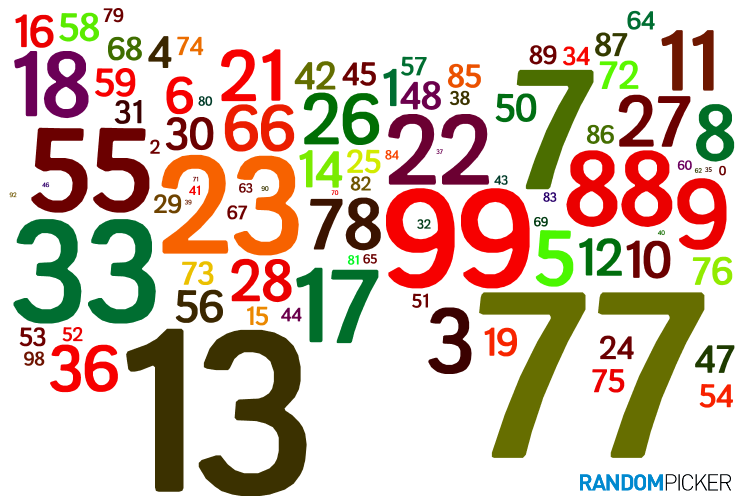Random Number Generator
Random numbers? It might seem like an easy task, the world and nature is full of randomness. As a matter of fact, randomness is a topic for many teams of scientists. Our random name picker uses two main methods how to generate random numbers.
True random numbers
There are several ways to generate real random numbers – radioactive decay, thermal noise, shot noise, clock drift, avalanche noise, radio noise and many other. There are also several ways how to test the randomness (Autocorrelation test, Kolmogorov-Smirnov test, Diehard tests etc.).
For those who want to use true random numbers to draw winner, RandomPicker provides the thermal noise method.
We use a random number generator (RNG) based on a physical process. The hardware generator supplies an absolutely constant voltage and measures the small variations in the resistor’s heat output. This entropy is converted into random numbers.
You can see below how the output from the random number generator looks like, it’s a long sequence of random bits (0-1). The sequence is split into many subsequences of a specific length, for example 16bit – and voilà, the random number has been created!
We test each set of random numbers for randomness and then we convert them into decimal numbers, deduplicate the set and assign the numbers to entries.

Pseudorandom numbers
According their name – those numbers are not fully random. They are the result of a specific computer algorithm. It’s easier to generate pseudorandom numbers than true random numbers and you can find them in many desktop or server applications by using the RAND() function: in spreadsheets, C++, PHP, ASP and other programming languages.
RandomPicker.com offers the GUID pseudorandom method – Globally Unique Identifier. GUID generates very long numbers so the probability of the same number in the set is extremely low – 2128. Here is an example of one number presented in a hexadecimal format: 35AF1252-4BFE-29629-B8FA-20911A21490C. If you are interested in details, visit this article on Wikipedia.
GUID method is sufficient to draw winners and the method much quicker than the true random number generator.

Is your brain a good random number generator?
In cooperation with Data Collect market research institute, we conducted a survey and asked 600 people to mention any random number between 0-99. Do you think results were random and the crowd would be a fair random number generator? Unfortunately not at all, some numbers are preferred, some numbers weren’t mentioned at all.
What is the least random number?
The number 17 is the least random number according to MIT 🙂 Students were asked to mention a random number from 0 to 20 and 17 was the number with the highest frequency. Here are our results (the scale was 0-99, 600 respondents):
Favorite numbers (the highest frequency): 77, 13, 7, 33, 23, 99, 55
On the other hand, these numbers are the most unpopular according to this study (the lowest frequency): 20, 49, 61, 91, 93, 94, 95, 96, 97
Ready to Start Your New Giveaway?
Try RandomPicker, the platform for giveaways and random drawings chosen by more than 200k companies worldwide.